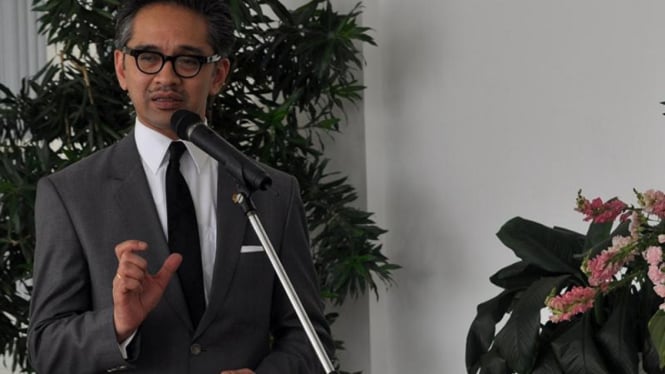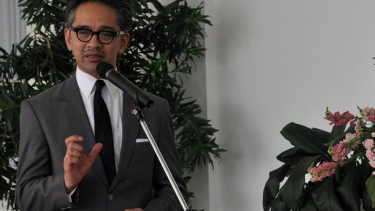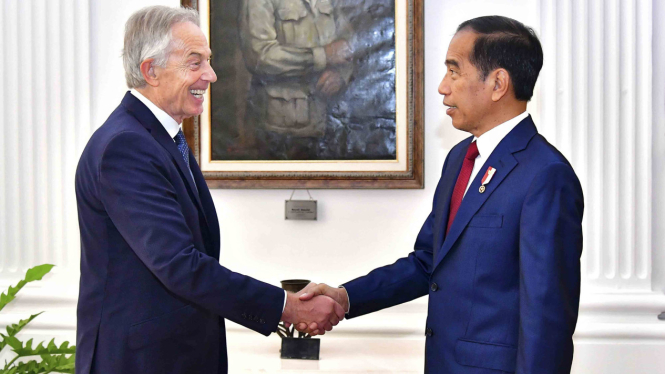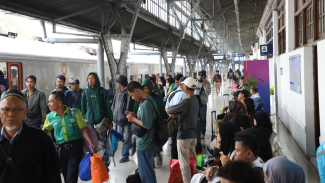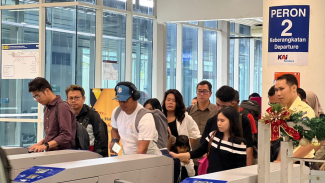War Against Piracy
- VIVAnews/ Muhamad Solihin
VIVAnews - Piracy is one of the oldest crimes with a universal character. Its nature is complex and multi-faceted. This is a challenge that has a devastating impact on the safety of international navigation and maritime security. A problem that has affected international trade and commerce and, not least, a crime that has caused the loss of many innocent lives.
Indeed, left unattended, it may constitute nothing less than a threat to regional and international peace and security. Needless to say, thererefore, it is indeed time that we worked even more closely together to put an end to the persistent challenge of piracy.
All stakeholders must be involved. The response must be at once national, regional and global.
First, we must identify and address the root cause of this problem. This is not a stand-alone problem. And there is not a one size fits all solution. Thus, in the case of the incidences of piracy off the coast of Somalia, they appear inseparable from the conditions in Somalia itself.
We should therefore strive as vigorously as we can to help create climate conducive for Somalia to address its internal situation; one that promotes national stability and prosperity. To support the enhancement of that country's national capacity to comprehensively deal with the threat of piracy.
Second, the universal legal regime against piracy as provided for in the United Nations Convention on the Law of the Sea must continue to be respected. In addressing this threat to international security, our focus should be on the enforcement of the international legal regime against piracy.
It is a point well recognized in the resolutions of the Security Council since 2008, inluding the latest, Security Council resolution 1976 (2011), which provide the required legal framework in addressing piracy and armed robbery against ships off the coast of Somalia.
Indonesia has been at the forefront in support of these resolutions. They make possible robust response, without, however, affecting the existing carefully balanced international law of the sea. They do not affect the rights or obligations or responsibilities of member states under international law, and should not be regarded as customary international law.
There is a particular urgent need to address the issue of prosecution and trial of pirates. Indonesia is of the view that international cooperation in the prosecution of piracy crimes under the framework of international law must be strengthened.
It is imperative that the international community provide necessary assistance to the littoral countries in their judicial capacity building. Thus, Somalia and the other regional countries can enhance and synergize their national legal systems to deal more effectively with piracy.
The establishment of specialized Somali courts in Somalia and in the region, including specialized extraterritorial Somali anti-piracy courts, should be considered positively.
Third, littoral states in a region affected by piracy and armed robbery at sea should carry out coordinated patrols to ensure the safety of navigation and maritime security. Other states should support littoral states in this vital task.
In the case of acts of piracy off the coast of Somalia, this is essential if the unprecedented multilateral military coordination mechanism that is at work in the region are to bring the desired results in a sustained manner.
Thus, often victim vessels were attacked outside the coverage of existing joint patrols by international naval taskforces. This means that the international community needs to double its efforts at solving the problem of piracy off the coast of Somalia.
The vast waters in the Gulf of Aden are insufficiently covered by naval patrols of participating user countries. These should therefore be complemented by, and indeed, build on, joint and coordinated patrols by the region’s littoral states.
This is a critical step. And we are confident that such a robust counter piracy operation, supported by sufficient military capability and joint and coordinated patrols by the region’s littoral states, will be more effective than all previous efforts.
Safeguarding the Malacca Strait
Allow me to share the experience of Indonesia and other Southeast Asian littoral states in dealing with piracy in the Strait of Malacca and the Strait of Singapore. Over 60,000 vessels pass through this strategic sea-lane every year.
To ensure maritime security in these Straits, the three littoral states—Indonesia, Malaysia and Singapore—are carrying out coordinated patrols. These efforts are strengthened by an air patrol, carried out together with Thailand, known as “Eyes in the Sky.”
These measures have greatly reduced the incidence of armed robbery at sea along both Straits. In 2000 there were 118 such cases reported. We were able to reduce that to an average of 55 in the next five years. Since 2006, the average incidence was down to five a year.
The key factor behind that success has been regional cooperation. That brings me to my final point: to deal effectively with the challenge of piracy, we must deepen our partnership.
We must also identify and address all aspects of the problem. We must enlarge the network of stakeholders that contribute to its solution.
The littoral states, the user states, the international community and the private sectors—all must share the burden of ensuring safety of navigation and maritime security in pirate-infested waters. A mechanism of cooperation for this purpose should therefore be established.
Corporations have a social responsibility to help in these efforts. For instance, they could contribute to a trust fund to support global efforts against piracy off the coast of Somalia. Without private sector involvement, these efforts will not succeed. And if they do succeed, the private maritime industry will be among the first beneficiaries.
For decades, piracy has inflicted so much loss. Hence, all are committed to address it. On the part of governments, what is needed is to manifest the obvious political will in the form of mechanism for cooperation against piracy. And to apply that mechanism to effective law enforcement.
And on the part of the private sector, the corporate will to assume a clear and urgent social responsibility. Striving hard together, we can overcome this challenge.
This is an edited speech delivered by Foreign Minister of Indonesia, Dr. Marty Natalegawa, at the World Public-Private Counter Piracy Conference in Dubai, United Arab Emirates, 18 April 2011. The original title of the speech is “Global Challenge, Regional Responses: Forging a Common Approach to Maritime Piracy” and can be obtained in the official website of the Indonesian Foreign Ministry (www.kemlu.go.id)


